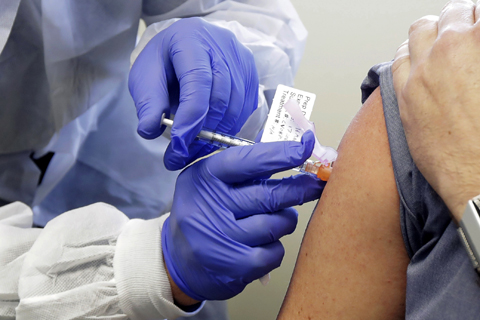
For those who have been fully vaccinated against COVID-19, CDC says you can do more things safely
Contributed By:The 411 News
But it comes with precautions for the unknowns about the COVID-19 vaccines and COVID-19 variants
Centers for Disease Control and Prevention issued new guidelines Monday for those who have been fully vaccinated.
The Pfizer, Moderna and Johnson & Johnson COVID-19 vaccines are effective at protecting the fully vaccinated from getting sick. According to Monday’s guidelines from the CDC, “Based on what we know about COVID-19 vaccines, people who have been fully vaccinated can start to do some things that they had stopped doing because of the pandemic.”
Johnson & Johnson’s vaccine requires only 1 shot to be fully vaccinated; Pfizer and Moderna require 2 shots.
If you’ve been fully vaccinated, you can gather indoors with fully vaccinated people without wearing a mask. You can gather indoors with unvaccinated people from one other household (for example, visiting with relatives who all live together) without masks, unless any of those people or anyone they live with has an increased risk for severe illness from COVID-19.
If you’ve been fully vaccinated and if you’ve been around someone who has COVID-19, you do not need to stay away from others or get tested unless you have symptoms.
If you’ve been fully vaccinated and you live in a group setting (like a correctional or detention facility or group home) and are around someone who has COVID-19, you should still stay away from others for 14 days and get tested, even if you don’t have symptoms.
“We’re still learning how vaccines will affect the spread of COVID-19. After you’ve been fully vaccinated against COVID-19, you should keep taking precautions in public places like wearing a mask, staying 6 feet apart from others, and avoiding crowds and poorly ventilated spaces until we know more,” the CDC said.
Some things haven’t changed for the fully vaccinated.
For now, if you’ve been fully vaccinated, still take steps to protect yourself and others in many situations, like wearing a mask, staying at least 6 feet apart from others, and avoiding crowds and poorly ventilated spaces.
Take those precautions whenever you are in public, gathering with unvaccinated people from more than one other household. Take those precautions if visiting with an unvaccinated person who is at increased risk of severe illness or death from COVID-19 or who lives with a person at increased risk
• You should still avoid medium or large-sized gatherings. You should still delay domestic and international travel. If you do travel, you’ll still need to follow CDC requirements and recommendations.
• You should still watch out for symptoms of COVID-19, especially if you’ve been around someone who is sick. If you have symptoms of COVID-19, you should get tested and stay home and away from others.
• You will still need to follow guidance at your workplace.
Monday’s new guidelines help explain why precautions must still be taken even when fully vaccinated. Even though vaccines are effective at preventing the COVID-19 disease, especially severe illness and death, the CDC is still learning how effective the vaccines are against variants of the virus that causes COVID-19. Early data show the vaccines may work against some variants but could be less effective against others.
The CDC knows that prevention steps like mask wearing and socially distancing are still important in stopping the spread of the virus, along with the vaccine rollout, but the CDC is still learning how well COVID-19 vaccines keep people from spreading the disease.
Just as it was learned when the virus hit the U.S., some carried the virus and infected others without themselves having symptoms and without getting sick. The CDC wants to learn whether vaccinated people may act the same.
The CDC is still learning how long COVID-19 vaccines can protect people.
Story Posted:03/08/2021
|